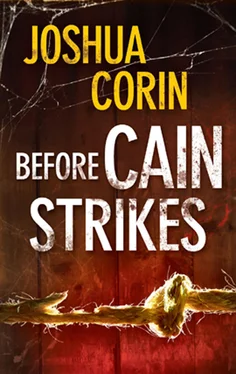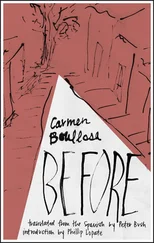There he sat, less than an arm’s length away. Had he looked at her once since they left the therapist’s office? What was he thinking? She could ask him, but she already knew his answer would be “Nothing,” and that would be that.
Despite it all, she still loved him.
His lenses on his glasses were dirty. He rarely cleaned them himself, not out of laziness but plain apathy. How could he see out of them? She wanted to reach for his glasses case, take out that cheap piece of microfiber cloth that came with it and wipe his lenses clean right now, while he was driving. Six months ago, she would have. He would have protested and then he would have pretended to be blind and he would have forced her to take the wheel and it would have been fun.
Only six months ago.
They drove home in silence and pulled into their affluent neighborhood. The digital clock on the Prius’s dash read 9:22 p.m. Sophie should be in bed by now. During the Galileo incident, Rafe’s ornery father, Lester, had come down from upstate to help out and, well, never left. On one hand, this meant they had a babysitter whenever she and Rafe wanted some alone time. On the other hand, this meant that every day she had to put up with the old man’s judgmental mutterings. He did not like her, had never liked her, and made no apologies for it.
As they neared the driveway of their two-story colonial, they could tell something was wrong. There was a car already in the driveway, not Lester’s old Cadillac, which was in the shop, but a fat, immaculate white Studebaker. It was blocking Rafe’s spot in the garage. There were lights on in the house, but the curtains were drawn.
“Are we expecting guests?” asked Esme.
Rafe shook his head and pulled alongside the Studebaker.
They had a gun in their bedroom, locked in the bottom drawer of Esme’s night table. But Esme shuffled that overreaction to the back of the line and got out of the car. They were safe here in Oyster Bay. Yes, their home had been violated once before, but that had been a special case. To panic only gave credence to her absurd suggestion about Iceland. She looked over at Rafe.
He remained in the car.
“It’s okay,” she told him.
“You don’t know that,” he replied.
This wasn’t cowardice. This was textbook post-traumatic stress disorder. Henry Booth had almost killed him. She wanted to reach back into the car and give her husband a real hug, a protective hug, a hug to keep away all the demons. But she couldn’t.
Instead, she walked toward the front door.
Who would be visiting them at nine-thirty on a Wednesday night? There was a Florida license plate on the back of the Studebaker, so whoever it was had driven a long way. And nobody traveled one thousand miles for a surprise visit, not even one of Lester’s old buddies.
Esme reconsidered her overreaction.
She glanced back at the Prius. Rafe remained paralyzed. He probably wanted to move. He probably was willing his muscles to move. But they weren’t responding. Esme assumed he was thinking about Sophie, about his father, inside the house, possibly in danger, about her perhaps even, unarmed, her hand now on the doorknob. But still, his hands remained on the steering wheel and his legs didn’t budge an inch. No, she wasn’t upset with him. She pitied him. The cold air misted the breath in front of her lips, and through the dissipating mist, she turned the unlocked doorknob and opened the front door.
There was a stranger in the den. He had a glass of wine in his hand. His head looked like a penis. It was bald, ruddy, oblong, and protruded from a brown turtleneck sweater that looked scratchy and lint-infested. He was a large man, easily six-four, and had the gut of a beer keg.
“Grover Kirk,” said the stranger, by way of introduction. He reached out a sweaty-looking hand. “I’ve left you several messages.”
Grover Kirk?
“I’m writing that book about the Galileo murders. I’ve been trying to get an interview with you and your family.”
Ah, yes. Grover Kirk. Esme glanced again above his shoulders. Definitely a dickhead.
“Mr. Kirk, who invited you into my house?”
“Your father-in-law. Lovely fellow. Relayed to me some terrific anecdotes. He’s in the bathroom at the moment. I’m afraid he might have had a bit too much red wine. I brought up a bottle from my vineyard in central Florida. Would you like some?”
He reached for a half-empty bottle on the coffee table. The bottle had stained a purple ring on the cover of one of Esme’s Sudoku books.
She knew forty-four ways of rendering him unconscious in five seconds.
“Mr. Kirk,” she said, “if you’ll recall, I did respond to your first phone message. I told you that I wasn’t interested in participating. I told you that my family wasn’t interested in participating.”
“Your father-in-law seemed very interested.” He offered her the bottle. “How was marriage counseling?”
The front door opened. It was Rafe. Finally.
“I… Who’s this?”
Grover again reached out with his hand and introduced himself.
“He’s the one who’s writing that book about Henry Booth.”
“And all associated with what he did,” added Grover. “My book would be incomplete without long passages about you and your wife. Just to be here, in this house, where it all went down, is an honor.”
Esme gritted her teeth. “He wasn’t Elvis Presley, Mr. Kirk. He was a psychopath and this family is trying to put all of that behind us.”
“You can’t escape the past, Mrs. Stuart. Surely you of all people know that.”
She wanted to ask him what he meant, but she really, really wanted to clock him upside the head, and had taken a step forward when they all heard the downstairs toilet flush. There was nothing like that sound to eliminate the tension in a room.
“Leave,” muttered Rafe. “Now.”
Grover looked to him, then back to Esme, then finally to his bottle.
“All right,” he said. “I know when to call it a night. My card’s on the table. I’ll be staying at the Days Inn over in Hicksville. Give my regards to your father-in-law. Lovely fellow.”
He waited for them to move out of his way.
They moved out of the way.
“Be seeing you,” he said, and winked, and left.
Rafe locked the door.
“What an ass,” he said.
“I liked him,” replied Lester, shuffling into the room. “Wait…where’s the bottle of wine he brought?”
“He took it with him.”
Lester frowned. “Took it with him? What an ass.”
His reason for socializing gone, the old man continued on his way to his room. Esme counted the seconds until she heard his door slam shut.
Then she turned to her husband. He hadn’t moved far from the door.
“Are you okay?” she asked him.
“I…”
She reached out to him.
But once again: an interruption. This time it was Rafe’s cell phone, vibrating in his pants pocket.
“If it’s a Florida area code,” said Esme, “don’t answer it.”
Rafe examined the screen. “Five-one-eight.”
“Upstate?” asked Esme.
Rafe nodded and pressed Talk. “Hello?”
Esme watched him as he listened. His parents, Lester and Eunice, had raised him in upstate New York. It was only luck that Rafe chose a graduate school in Washington, D.C. Otherwise, they would never have met.
Eight years.
“Who is it?” Esme whispered.
Rafe put up a hand to silence her. His face had gone pale. Whatever he was hearing was not good news.
She had accompanied him a few times to his old house. His childhood in upper-middle-class suburbia had been very different from hers on the streets of Boston. But opposites attracted, right?
Rafe spoke a bit to the person on the other line, thanked them and then hung up the phone. He looked even more rattled than he had in the car.
Читать дальше












